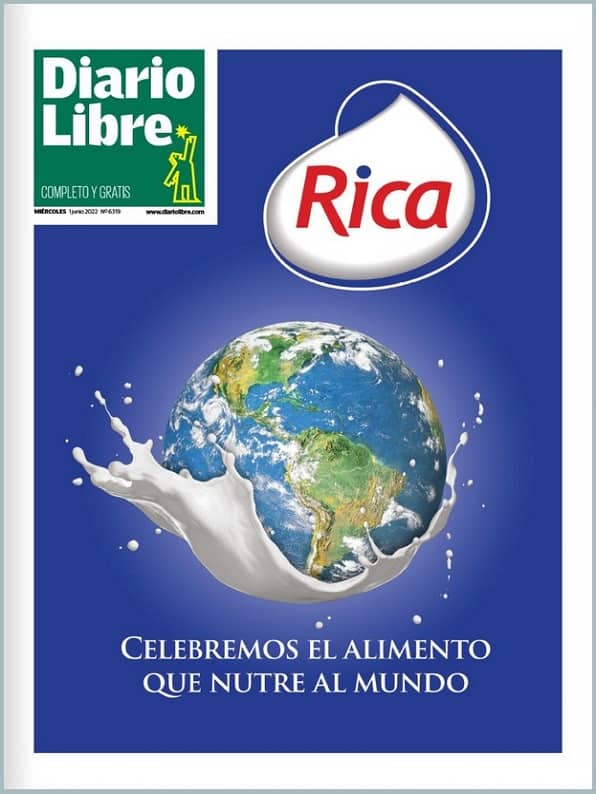The Law of Political Parties to be debated on Diario Libre and PUC MM panel
They will analyze the advances and challenges of the process of approving this legislative proposal
SANTO DOMINGO. The Pontifical Catholic University Madre y Maestra (PUC MM) and the Diario Libre newspaper will hold tomorrow a panel to analyze the advances and challenges that are pending in the approval process of the Law of Parties which is currently in the National Congress.
The panel will be held starting at 5:00 p.m. in the AO-3 Salon at the St. Thomas Aquinas campus of the PUC MM. Presenting expositions will be Henry Meran, the chairman of the Commission for the Law of Parties of the Chamber of Deputies, and the executive Vice President of the Institutionalism and Justice Foundation (Finjus), Servio Tulio Castaños.
At the end of the expositions, there will be a debate with the participation of political leaders and invited jurists.
Talking about the motives for the panel, the rector of the PUC MM, Monsignor Agripino Nuñez Collado, and the director of the Diario Libre, Adriana Miguel Tejada, said that there exist many questions within Dominican society regarding the scope of the law and its role in the institutionalization of the political life of the country.
Likewise, they said that the panel is pertinent at this moment in which a new election period is approaching, which will imply the election of officials at all the levels of the Dominican state.
Recently, Castaños Guzmán accused the political parties of not wanting to have the private financing that they receive regulated in the legislative proposal of the Law of Political Parties.
Castaños discarded the idea that the business community did not want the regulation of private financing. He said that they should create the mechanisms to regulate these funds and make them transparent, in order to see how they are invested in democracy.
He said that Finjus wants private financing to be regulated as it is in all the countries where there are laws of political parties, "because every four years in the country there are always some scandalous situations of persons tied to organized crime contaminating the political processes."
The obstacles
Henry Meran, the chairman of the joint commission of the national Congress that is studying the legislative proposal of the Law of Parties and Political Groups, said that there are nine points that have stalled the process of approval of this project. Among those points he indicated the reservation of candidacies, the switching of parties, and the distribution of the economic resources of the state. He stressed that last 27 October they concluded the discussions of the points of the consensus, "but there is a no date to meet in order to reach a consensus of the issues that have generated contradictions."
The panel will be held starting at 5:00 p.m. in the AO-3 Salon at the St. Thomas Aquinas campus of the PUC MM. Presenting expositions will be Henry Meran, the chairman of the Commission for the Law of Parties of the Chamber of Deputies, and the executive Vice President of the Institutionalism and Justice Foundation (Finjus), Servio Tulio Castaños.
At the end of the expositions, there will be a debate with the participation of political leaders and invited jurists.
Talking about the motives for the panel, the rector of the PUC MM, Monsignor Agripino Nuñez Collado, and the director of the Diario Libre, Adriana Miguel Tejada, said that there exist many questions within Dominican society regarding the scope of the law and its role in the institutionalization of the political life of the country.
Likewise, they said that the panel is pertinent at this moment in which a new election period is approaching, which will imply the election of officials at all the levels of the Dominican state.
Recently, Castaños Guzmán accused the political parties of not wanting to have the private financing that they receive regulated in the legislative proposal of the Law of Political Parties.
Castaños discarded the idea that the business community did not want the regulation of private financing. He said that they should create the mechanisms to regulate these funds and make them transparent, in order to see how they are invested in democracy.
He said that Finjus wants private financing to be regulated as it is in all the countries where there are laws of political parties, "because every four years in the country there are always some scandalous situations of persons tied to organized crime contaminating the political processes."
The obstacles
Henry Meran, the chairman of the joint commission of the national Congress that is studying the legislative proposal of the Law of Parties and Political Groups, said that there are nine points that have stalled the process of approval of this project. Among those points he indicated the reservation of candidacies, the switching of parties, and the distribution of the economic resources of the state. He stressed that last 27 October they concluded the discussions of the points of the consensus, "but there is a no date to meet in order to reach a consensus of the issues that have generated contradictions."


 Diario Libre
Diario Libre Diario Libre
Diario Libre